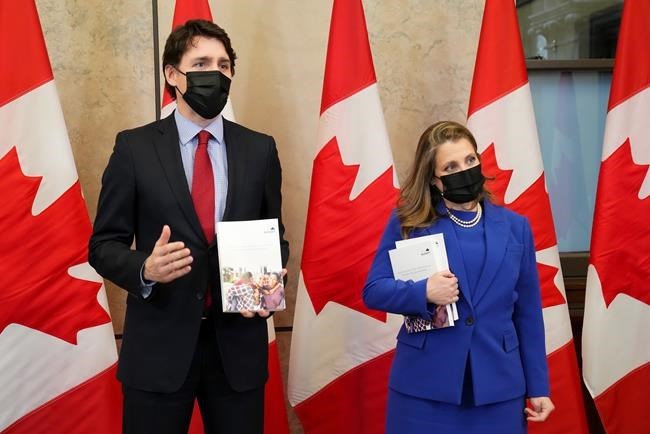OTTAWA — Canada's premiers say they're disappointed the federal government didn't put forward a sustainable plan to financially shore up the country's ailing health systems in its newly tabled budget.
Premiers have been calling for the health minister to negotiate a new deal for how much the federal government will pay into health care in Canada, but there was no money put forward in the budget.
"The federal budget missed an opportunity to address the major health care challenges facing Canadians,” said British Columbia Premier John Horgan, chair of the Council of the Federation, in a statement Friday.
“Increased, predictable and sustainable federal health funding would make a real difference in people’s lives. Unfortunately, the federal budget failed to deliver on this priority.”
Provinces have clamoured for the federal government to increase its share of health spending, with an immediate increase of about $28 billion.
They also want minimum funding increases of five per cent annually, arguing the current three per cent means transfers don't keep pace with yearly cost increases.
Currently, federal contributions to provincial health systems grow in line with a three-year moving average of nominal gross domestic product. Thanks to a sunnier economic outlook than expected, the transfers will rise by about 4.8 per cent.
The government also recently pledged $2 billion in one-time funding to help health systems work through the massive surgical backlogs that accumulated during the pandemic.
Those short-term gains aren't enough to make sustainable changes though, the premiers argue.
"One-time or short-term targeted spending cannot address the long-term challenges facing Canadians’ health care systems," the premiers' statement read.
Prime Minister Justin Trudeau says he knows the federal government needs to invest structurally in health care, but he wants to make sure it gets the best results.
"We need to be there as partners, so we're having preliminary discussions with the provinces about how we can move forward," Trudeau said in French in his first press conference since the budget was tabled.
Trudeau has said in the past he wants to get through the COVID-19 pandemic before renegotiating the federal government's share of health spending.
Organizations who represent health workers say they were also left wanting after the federal budget. They say the budget had no funds or plan to address serious worker burnout or the precarious state of the provincial systems as the pandemic wears on.
They're now pinning their hopes to the premiers' negotiations with the federal government.
HealthCareCan, an association of health-care organizations and Canadian hospitals, urged the government to meet with provincial and territorial leaders.
“We have heard repeatedly that movement towards the future of Canada’s health care system would occur once the pandemic passed,” said president Paul-Émile Cloutier in a statement.
"Canadians can no longer wait for the political leadership to build a modern health-care system that provides timely access to high-quality care, regardless of where you are in the country. They want and deserve action now.”
The Canadian Federation of Nurses Unions says it will stand with provinces in demanding an increased investment from the Liberals.
"The federal government has a legal obligation under the Canada Health Act to make sure the provinces and territories have enough resources to provide every Canadian health-care service regardless of where we live," said president Linda Silas.
The budget states that the Liberals want to make sure that any extra federal funds will improve the system.
Canada spends more of its gross domestic product on health than the Organization for Economic Co-operation and Development average, but is ranked behind peer countries in terms of outcomes.
Future negotiations will focus on improving outcomes, the budget stated, suggesting that more money would come with conditions like improved access to primary and mental health care.
This report by The Canadian Press was first published April 8, 2022.
Laura Osman, The Canadian Press




